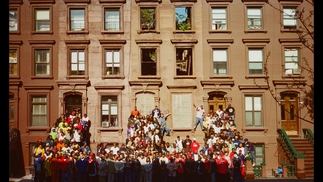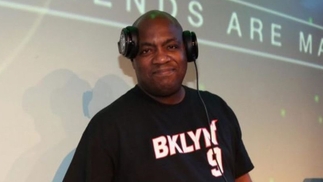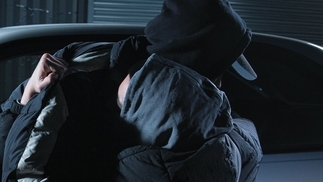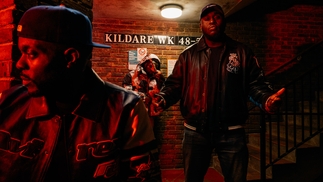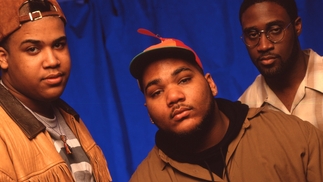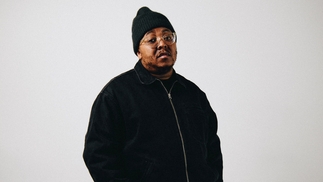TRAP MUSIC: UNDER LOCK & KEY
The trap phenomenon explained
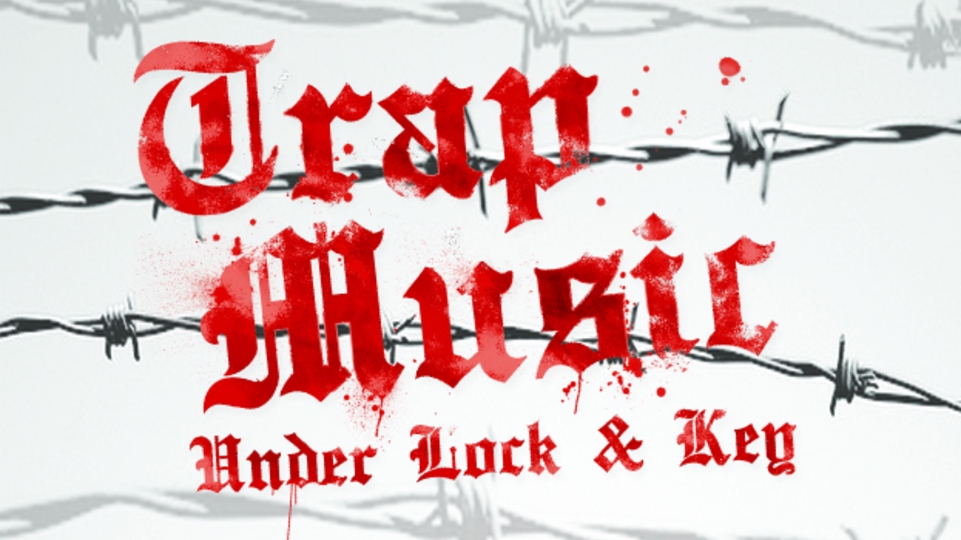
Is trap music in a trap? The question conjures images of a dog chasing its own tail, or the idea that pop music will eventually eat itself. Similar to the rhetoric question about a chicken and its offspring, it’s sometimes hard to gauge what came first: the genre or the hype.
In the case of the 808-heavy, epic-feeling rap sound of trap music (or its affectionate nickname, “real trap shit”), it may seem like the genre popped up out of thin air in 2012. But its vast history spans back over a decade, coming from a very different place than its current buzzword status in electronic music.
ORIGINS
The trap sound first emerged in the early 2000s as an enclosed scene in rough-edged neighborhoods in America’s Southern region. Across Texas, Alabama, Tennessee, Georgia and Virginia, local rappers like T.I., Gucci Mane, Young Jeezy, Triple 6 Mafia and Tity Boi (now known as 2 Chainz) all started branching out from what was then the sound of the hood: crunk. Along with producers like Shawty Redd, Drumma Boy, Mannie Fresh and Mike WiLL Made It, trap brought rap music to a new sonic dimension: with dark energy, a gothic feel, street culture (guns, drug houses, strippers) and an allover gigantic sound. Trap records dominated mixtapes and local radio, and blew up in nightclubs and strip clubs across the South..
By 2010, trap was highlighting the top of the mainstream hip-hop charts, particularly when a young Alabama producer named Lex Luger broke out, producing multi-platinum hits like Waka Flocka’s ‘Hard In The Paint,’ Kanye West’s ‘See Me Now’ and Rick Ross’ anthemic ‘B.M.F.’. Rap stars like Juicy J, Lil B, Future, and Chief Keef, meanwhile, flooded the ‘net with trap tracks and mixtapes that set the underground loose, causing viral wildfire.
Crunk and trap music travelled to hyped dancefloors in Europe within electronic music’s underbelly from the very beginning, through the likes of rap-heavy DJs such as Hollertronix (Diplo and Low Bee), Hudson Mohawke, Rustie, Jackmaster, Sinden, and more recently Lunice, Jacques Greene and MPC whiz Araabmuzik. But over the last year, trap gained a much-hyped interest in the electronic music world and blogosphere. It’s since evolved into a different beast, one that has a few opposed faces.
ELECTRONIC EXPANSION
Trap’s expansion in the UK in 2012 was kicked off to a new level by production duo TNGHT (aka Mohawke and Lunice), whose infectiously trippy instrumental tracks like ‘Higher Ground’ and ‘Bugg’n’ became veritable trap anthems in the UK scene. Breakout producers like RL Grime and Bauuer also came to light with a UK club-geared sound. Trap was suddenly dropped in sets across different scenes, and piqued the interest of some of electronic music’s dons, including Kode9, Amon Tobin and the Brainfeeder family.
Across the Atlantic, meanwhile, a few North American producers also began giving trap a new sheen, but added a completely different texture. Merging dubstep, rap’s playful swagger and the energy of electro, “EDM trap” prototypes started to emerge from the likes of Flosstradamus and UZ (who even released a chronological series called ‘Trap Shit’), among others. Mad Decent certainly played a part through trap’s EDM explosion, if not being one of the main driving forces. Paul Devro, DJ/producer and creative director at Mad Decent, explains when he first felt the switch.
“I remember the day Flosstradamus posted ‘Total Recall’ on their Facebook. I thought, ‘Whoa, they did it. They took what Araabmuzik was doing but made it really accessible to more than just bedroom beat-heads. I showed Diplo the video and we were tripping out.” Flosstradamus passed five or six more demo beats on to Devro and Diplo, and soon after the ‘Total Recall’ EP was released on Mad Decent’s sister label Jeffrees. Mad Decent and Jeffrees went on to curate what became some of the biggest noise in the sub-genre, which included hits from Baauer, UZ and Dillon Francis’ trap remixes.
HIPSTERS AND STADIUMS
These days, EDM trap is demanded by massive glow-sticked arenas in North America in equal measure to the hipster circuit; so much so, it’s now deemed in the same league as dubstep and moombahton. There’s even been a documentary series about trap’s diffusion, created by Mad Decent and ClubTapes.com, called ‘Certified Trap, Vol. 1.’ In some people’s eyes, the late-coming hype is considered the genre’s ambush, a thorn-laced booby trap that caught the sound into a cycle of ignorant re-appropriation and over-dilution. On the other side of the coin, some consider trap’s EDM crossover to be the very thing that set it free and wildly untamed into a world far beyond its US stronghold. Trap has been given an entirely new lease of life, with less rap and more chest-rattling bass, taking over dancefloors around the globe.
DJ/producer/Grizzly label owner Sinden has been a strong trap supporter since day dot. In 2011, he curated the official mixtape 'Free Gucci: The Burrtish Edition' with Gucci Mane, featuring a heap of UK heads (Wiley, Hudson Mohawke, Rustie, Tinchy Stryder, Duke Dumont, Mosca etc).
“The rise of EDM trap and the new breed of dance music trap producers have been steadily bubbling under the surface for quite a while,” Sinden explains. “Rap music is in the DNA of all the kids that go out to dance to techno, house and dubstep in America. Pair that with the growing momentum of dance music, and particularly with dubstep moving into the mainstream, and it was inevitable that EDM trap would find its voice on the same dancefloors.” Yet despite its explosion and implosion, many confused fans still seem to be poised with similar confusion: what exactly is trap music?
Drumma Boy, a multi-platinum Grammy-nominated producer, stops to consider his response in his current home of Los Angeles.
“Trap is just a culture that we created in the South,” he tells. Growing up in Memphis and launching a production career in Atlanta as a teenager in the early 2000s, Drumma went from working with Southern heroes like Yo Gotti, Jeezy and UGK’s Bun B, to working with international stars such as Busta Rhymes, Kanye West and Lil Wayne. “New York had its sound, the West Coast had its sound, and we didn’t really have anything to stand for other than gospel, R&B and blues. Coming out of my city [Memphis], the biggest music influence is blues. And back in the Marvin Gaye days, we were known for Stax and the funk. Coming out of Nashville, the biggest influence is country. As far as Alabama goes, we’re a music state but we weren’t known for hip-hop. So for trap to come, it was a whole new movement.”
As for the music itself, he continues, “The trap just feels dirty; it’s that dirty, grimey 808 snare clap. There are only eight or nine instruments that make the trap sound, and then the music comes in with this gangsta, club feel. And the music hypnotizes. Trap is a lot like trance music, but it’s Southern trance music. And most trap has scary music or some type of ambience. Sometimes it makes me think of The Twilight Zone.” He sings the eerie four-note melody. “It makes you feel like you’re in a dark dungeon, like you’re in the trap itself.”
RAP TO INSTRUMENTAL
DJ and mixtape maestro Trap-A-Holics contemplates the question whilst driving through his hometown in New Jersey. As a seminal member of Gucci Mane’s 1017 Brick Squad Records crew, he was one of the first artists outside of the South to be embraced as part of the trap movement. Creating history-making mixtapes since 2007, he’s responsible for giving trap music some of its most catchy ad-libs, including “real trap shit”.
“I think of trap more in terms of artists than I do an actual sound,” he tells. “It’s about the trap itself, whatever your definition may be. Some people say the trap’s a certain neighborhood, some say it’s a dope house. At the end of the day it’s just street music. It’s almost like how Dr Dre and Snoop were considered gangster music back in the day: it tells stories from the ‘hood.”
Drumma agrees.
“Everyone wants to know what the trap’s like. That’s why Gucci is your favorite rapper, or Jeezy, or Jay Z or Nas. These are people that come from these poverty areas and tell you the realest, most fucked-up shit. They give it to you in a story form, or in a format that makes you intrigued.”
The format for trap music has changed significantly over the last two years, and the audience and DJ culture around it has grown exponentially. And, of course, that can only mean one thing: haters. Critics and cynics accuse the genre of devolving into a primal, lowest-common-denominator formula. EDM trap is often branded a parody of the original trap sound, on a par with dubstep’s riotous, over-the-top cousin, “brostep”. The incessant hype and the genre’s change in sound have caused some electronic producers to try to avoid being branded with it. Though it’s hard to say for sure, it certainly proved a challenge to get any to commit to an interview for this article. Paul Devro shrugs it off.
“I don’t really pay attention to negative stuff, it doesn’t affect anything we do. We just put out music that we love and hope that it gives the artists exposure to go far.” When speaking about the meteoric rise of Flosstradamus, he continues, “Right when their tunes started buzzing on the internet, Josh [Young] from Flosstradamus told me how excited he was that people were so responsive to their new stuff, and that just a few months prior he’d almost quit DJing/producing to settle down and get a labour job. He’d said, ‘I hope this trap stuff we’re doing works out'. And now a year later they are so successful. If you work your ass off and stay true to yourself, you’ll always succeed.”
EDM EMBRACE
Though a chunk of the electronic music scene may have a detached relationship with trap, over the last year the rap game has been casting its eye towards the EDM scene. And contrary to dubstep’s protectiveness about their scene when it began expanding, the rap world is thrilled to have a chance to introduce their music to a new fanbase. Most of the OG trap producers had never left the South, let alone America, yet trap has now exploded in cities beyond their wildest imagination.
“A whole new other world is involved now,” Trap-A-Holics laughs. “I have a team at LiveMixtapes.com that premiere all of my mixtapes. Artists [like Flosstradamus] that were also putting out tapes on there were using my drops — like...” He does an impression of the characteristic ad lib found on all of his mixtapes. “‘Damn son, where’d you find that?’ It showed me that they’re messing with what we’re doing also. It’s really the beginning stages.” He continues, “The EDM music is dope. We had our own lane and they created something new with it. I’m loving it so far. They’re embracing me and I’m embracing them right back.”
Drumma Boy is equally as enthusiastic. “In 2010 I started hearing a lot of people talking about EDM and dub at the same time. Both of those things were different realms. But EDM and dub were both something I aligned with instantly — hence the name Drumma Boy, you know what I’m saying? I’ve been speaking with a whole ton of people in EDM — Flosstradamus, Skrillex, David Guetta. I’m definitely looking forward to tapping more into that world; we’ve just been playing around with it, taking the sound of trap with the sound of EDM and the sound of R&B.” “I’m happy with how it has evolved,” Paul Devro comments. “The top artists are being really smart about their output to the scene. There are so many imitators, but that happens with every form of every genre.”
“I hate to put titles on different genres,” Drumma adds. “It’s all about dope music. With the right instrumentation, the right vocals, the right arrangement and structure, regardless of if it’s a dub beat or a trap beat, it’s not gonna matter. As long as you express yourself, it’ll be good.”
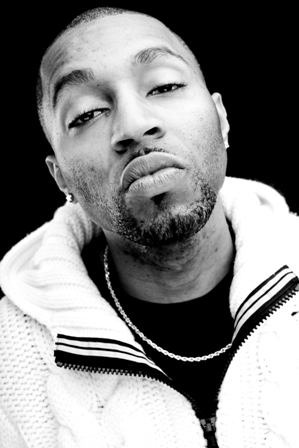
DRUMMA BOY
TOP 3 TRAP TRACKS
1) YOUNG JEEZY ‘Standing Ovation’
“‘These are more than words, this is more than rap. This is the streets and I am the trap’. That’s a motivating trap record, you gotta hear that one.”
2) TONY MONTANA ‘Future’
“This is the trap sound right now. It’s just stupid!”
3) GUCCI MANE ‘Crazy’
“I had to include something from ‘trap god.’ Him and Waka, the chemistry is just undeniable. Anytime I can get Gucci and Waka on a track, I always feel special. Dudes did a lot for each other, I was able to assist the whole movement between those two, and they’re both good friends of mine. Those two are a hell of a one-two combo. It’s like Method and Redman, you want BOTH of them.”
